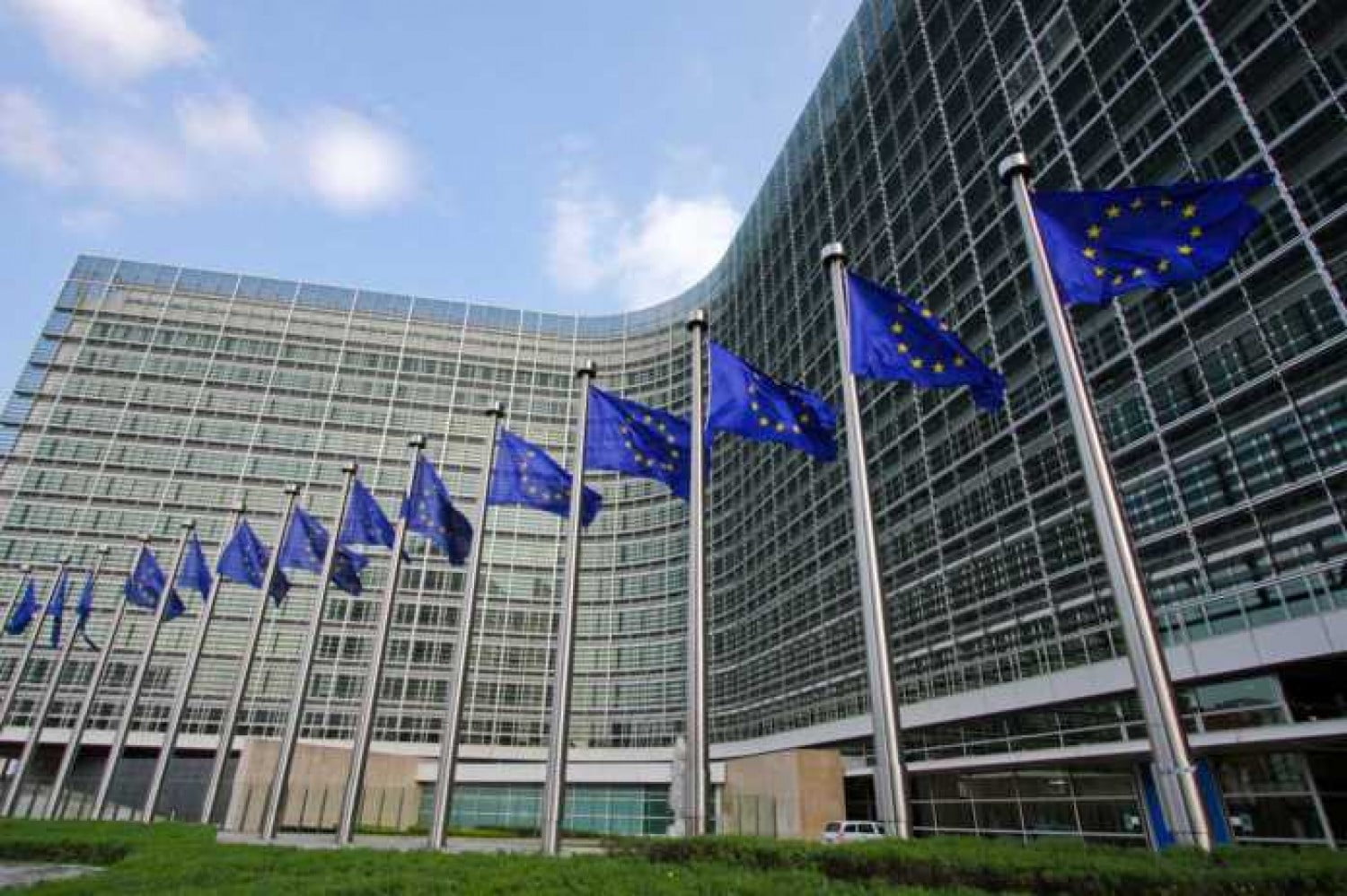Πρακτική άσκηση στην Ευρωπαϊκή Κεντρική Τράπεζα
Reference: 2016-063-TRA EXT
Closing Date for Applications: Tue, 12 Apr 2016
The Directorate General International and European Relations (DG/I) of the European Central Bank (ECB) is seeking applications from recent graduates or students who have completed at least a first degree in economics, political science, European studies or a related field for its traineeship programme. Candidates who have completed at least two calendar years of their PhD studies are invited to apply to a separate vacancy for traineeship at the PhD level.
DG/I prepares policy positions on international and European issues, excluding positions on the macroeconomic policies of the euro area or European Union (EU) countries, for the ECB, the Eurosystem and/or the European System of Central Banks (ESCB). The Directorate General comprises four divisions: (i) the EU Institutions and Fora Division; (ii) the External Developments Division; (iii) the International Policy Analysis Division; and (iv) the International Relations and Cooperation Division.
The EU Institutions and Fora Division (EIF) prepares policy positions and briefings relating to the non-macroeconomic internal and external policies, as well as institutional issues, of the EU, including those that are discussed at meetings of the EU bodies in which the ECB participates. It also prepares policy positions and briefings on issues relating to the activities of relevant EU institutions and bodies (e.g. the European Parliament, the European Commission, the European Council and the European Investment Bank). The Division acts as primary contact for European institutions and fora and coordinates the discharging of the ECB’s accountability obligations. It also handles contacts with national parliaments – when the need arises – on European issues. Its competencies also include work related to the further development of EMU economic governance and banking union.
The External Developments Division (EXT) monitors and analyses economic conditions in non-EU countries and the global cyclical situation. The Division prepares macroeconomic projections for non-EU countries and the global economy, coordinates the international part of the ECB/Eurosystem staff projection exercise and conducts simulation and scenario analysis relating to the international environment. It also prepares studies, briefings and reports in its area of competence that support the decision-making bodies of the ECB and serve as inputs for the European Systemic Risk Board (ESRB), the Single Supervisory Mechanism (SSM) and the ECB’s financial stability reports, as well as for documents used by Executive Board members and senior managers when they attend international and European meetings. Finally, the Division acts as primary contact for central banks and other institutions in non-EU countries.
The International Policy Analysis Division (IPA) prepares policy positions, briefings and policy relevant research on (i) global economic and financial issues of systemic relevance, e.g. global imbalances, and exchange rates; (ii) global trade, competitiveness issues and commodities; and (iii) global capital markets and financial stability, global spillovers and linkages. The Division also examines international monetary and financial issues, including the international role of the euro and the dollar and the implications of different monetary and exchange rate policies and regimes. It also covers issues under its responsibility related to activities of the G7, G20 and the Bank for International Settlements (BIS). Furthermore, it prepares input for the projection exercise regarding commodity prices, exchange rate developments and risks stemming from global issues of systemic relevance, including global risks to financial stability.
The International Relations and Cooperation Division (IRC) prepares policy positions, analyses and briefings on issues related to the International Monetary Fund (IMF) and other international and regional financial institutions. It provides the Secretariat for the International Relations Committee of the European System of Central Banks (ESCB) and coordinates briefings and meeting preparations for the institutions and fora that fall under its core responsibilities. The Division coordinates technical cooperation with non-EU central banks within the ECB, the Eurosystem and the ESCB, and maintains high-level dialogues with these non-EU central banks. It also prepares policy positions, analyses and briefings on issues related to EU candidate and potential candidate countries (including issues related to macroeconomic and financial stability) and the EU accession process. The Division acts as primary contact for central banks and other institutions in EU candidate and potential candidate countries.
The successful applicants will be assigned to one of the four Divisions.
The traineeships will allow successful candidates to gain an insight into the policy-making processes and analytical activities of the ECB, thereby enabling them to acquire new skills, ideas and stimuli for their future graduate studies or professional orientation.
The successful applicants will work closely with DG/I staff members. This may include work of an operational nature, such as supporting staff members in establishing databases and preparing policy-related notes and presentations for the ECB’s decision making bodies, or providing research assistance and participating in analytical projects.
Depending on the Division to which they will be assigned, successful candidates will generally be expected to work, together with DG/I staff, in one or more of the following areas:
- monitoring and analysis of issues related to EU integration and governance, ECB accountability, and the EU’s internal and external policies (particularly relevant for EIF);
- monitoring, analysis and forecasting of economic conditions in non-EU countries and the global cyclical situation (particularly relevant for EXT);
- monitoring and analysis of financial issues of systemic relevance, global capital markets, exchange rates and commodities, and global linkages (particularly relevant for IPA);
- policy issues concerning the IMF, other international or regional financial institutions, and the international financial architecture; monitoring and analysis of developments in EU candidate and potential candidate countries, including monetary financial stability issues (particularly relevant for IRC).
Specific tasks may also include: the construction and maintenance of databases of monetary, financial and economic data; the presentation of data in conjunction with basic economic and econometric analysis; and the programming of mathematical and statistical procedures for the maintenance and development of econometric or modelling tools in DG/I.
Applicants are invited to explain their motivation for working in one or more of the above Divisions. They are also encouraged to submit one example of their academic writing, on a topic of relevance to the areas mentioned above.
Qualifications and experience:
Applicants must have the following knowledge and competencies:
- a bachelor’s degree in economics, political science, European studies, finance or related field;
- a master’s degree in economics, political science, European studies, finance or other related field would be considered an asset;
- a solid background in quantitative analysis and an active interest in policy-relevant and applied research would be a strong asset.
Ideally, the successful applicants should have the following competencies (competencies do not apply equally to all Divisions):
- a very good knowledge of international macroeconomics, monetary economics and/or international finance, and prior experience in the analysis of advanced or emerging market economies (particularly for EXT, IPA and IRC Divisions);
- a very good understanding of the functioning of EU institutions and fora, and of the EU’s institutional set-up and policy affairs (particularly for EIF Division);
- a good knowledge of macroeconomic and financial market statistics as contained in international databases (such as those provided by Datastream, Bloomberg, Haver Analytics, the ECB, the BIS or the IMF) (particularly for EXT, IPA and IRC Divisions);
- a good knowledge of time series and/or panel econometrics (particularly for EXT, IPA and IRC Divisions);
- a very good knowledge of spreadsheet and database programmes (such as Excel), standard econometric packages (such as STATA, E-Views or MATLAB) and programming experience (particularly for EXT and IPA Divisions);
- experience in drafting briefings/policy notes and analytical report;
- a record of analytical work on some of the topic areas mentioned above;
- an advanced-level command of English;
- an intermediate-level command of at least one other official language of the EU;
- a very high level of computer literacy and the ability to use various software applications, including a good working knowledge of MS Office, in particular Word, Excel, and PowerPoint.
Competencies:
The successful candidate will have the following behavioural competencies:
- communicates ideas in an effective manner and ensures mutual comprehension;
- manages his/her own workload independently;
- shares information and supports team members in the achievement of common goals;
- establishes and maintains cooperative relationships with staff and management at all levels;
- pursues projects with energy and drive;
- prioritises tasks and pays attention to detail, even when under time pressure;
- contributes to the success of projects by offering new ideas;
- assesses current solutions and recommends superior alternatives;
- adapts to changing plans and circumstances with ease.
Further Information:
Traineeship of three months, with the possibility of an extension to up to 12 months in total in the Directorate General International and European Relations.
To further enhance the diversity of its workforce, the ECB particularly encourages applications from female candidates.
The selection committee may place suitable candidates on a reserve list, from which candidates may be appointed to similar positions in the same or another business area. It may also be decided to fill the position(s) advertised in this vacancy notice with a suitable candidate or candidates from the reserve list resulting from a recruitment procedure for a similar position. Candidates will be informed accordingly if this happens.
Candidates may submit a curriculum vitae in addition to the standard online application and one example of their academic writing (e.g. thesis).
How to apply:
Applications are to be made in English and submitted using our online application form. An “Applicants’ Guide” can be downloaded from our recruitment pages.
The recruitment process may include a pre-screening exercise and a telephone interview.
Before applying, applicants should check that they meet the conditions set out in Article 4 of the rules governing the traineeship programme:
http://www.ecb.europa.eu/careers/pdf/traineeship_programme.pdf.
Further information on the ECB’s traineeships can be found at
http://www.ecb.europa.eu/careers/newcomers/trainee/html/index.en.html.
Applicants are accepted from nationals of the Member States of the European Union.
The requirements laid down in the vacancy notice must be met by the closing date for applications.
This vacancy notice may be used to fill the same position again, or similar positions, within 12 months of the selection decision.


